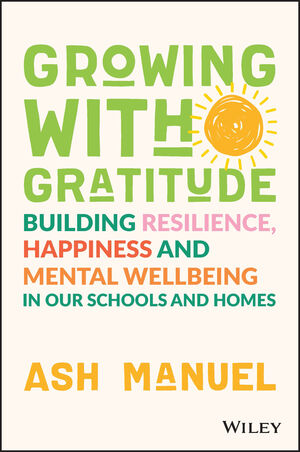Building resilience with gratitude is essential for mental well-being and overcoming challenges effectively. By practicing gratitude daily, individuals can cultivate a positive mindset and cope with stress better.
Embracing a grateful attitude empowers individuals to navigate through tough times with resilience and optimism. This simple yet powerful practice can enhance mental strength and emotional stability, leading to improved overall well-being. In this blog post, we will explore the impact of gratitude on resilience and provide practical tips on incorporating gratitude into daily life.
Let’s delve into how expressing thanks can transform our outlook and enhance our ability to bounce back from adversity.
The Power Of Gratitude
Gratitude is a powerful force that can transform our lives, helping us to build resilience and find strength in the face of adversity. The practice of gratitude goes beyond simply saying “thank you” – it involves cultivating a mindset of appreciation for the positive aspects of our lives, no matter how small they may seem. In this article, we will explore the incredible power of gratitude as a catalyst for positive change and how it goes beyond simple thanks to shape our perceptions and experiences.
Catalyst For Positive Change
Gratitude serves as a catalyst for positive change by shifting our focus from what we lack to what we have. When we acknowledge and appreciate the good things in our lives, we train our minds to seek out the silver linings in difficult situations. This shift in perspective can have a profound impact on our mental and emotional well-being, helping us to navigate challenges with greater resilience and optimism. By embracing gratitude, we can reframe our experiences and find strength in the face of adversity.
Beyond Simple Thanks
Gratitude extends beyond simple thanks by influencing how we interpret and respond to the world around us. Rather than dwelling on negativity or setbacks, cultivating gratitude allows us to focus on the positive aspects of our lives. This practice can lead to a heightened sense of self-awareness and a deeper appreciation for the interconnectedness of our experiences. Ultimately, the power of gratitude lies in its ability to shape our perceptions, foster resilience, and cultivate a mindset of abundance and positivity.
Resilience In The Face Of Adversity
In challenging times, cultivating gratitude can fortify resilience, enabling individuals to navigate adversity with strength and optimism. By acknowledging and appreciating the positives, one can build a resilient mindset to overcome obstacles and emerge stronger.
Defining Resilience
Resilience is the ability to adapt and bounce back from adversity, trauma, or stress. It is not about avoiding difficult situations, but rather, facing them with a positive attitude and finding ways to overcome them. Resilience is a skill that can be developed over time, and it involves taking care of your physical, emotional, and mental health.The Role Of Gratitude
Gratitude is the practice of being thankful for what you have, rather than focusing on what you lack. It plays a crucial role in building resilience because it helps to shift your focus from negative thoughts and emotions to positive ones. When you cultivate a sense of gratitude, you become more resilient because you are better able to cope with stress and adversity.Life is full of challenges and setbacks, and it is not always easy to stay positive when things go wrong. However, building resilience is essential if you want to overcome adversity and come out stronger on the other side. By practicing gratitude, you can develop the skills you need to face life’s challenges with a positive attitude and a growth mindset.Here are some ways that gratitude can help you build resilience in the face of adversity:- Gratitude helps you find meaning and purpose in difficult situations.
- Gratitude helps you focus on the positive aspects of your life, even when things are tough.
- Gratitude helps you build strong relationships with others, which can provide support and comfort during difficult times.
- Gratitude helps you develop a growth mindset, which allows you to see challenges as opportunities for growth and learning.
Gratitude Practices For Daily Life
Enhancing resilience through gratitude practices can be a powerful tool for daily life. By focusing on the positive aspects of life, expressing thanks, and keeping a gratitude journal, individuals can cultivate resilience and build a more positive mindset. These practices can help in facing challenges with a stronger and more optimistic outlook.
Journaling Your Gratitude
One powerful way to incorporate gratitude into your daily life is through journaling. This simple practice involves taking a few minutes each day to write down the things you are grateful for. By putting pen to paper, you can enhance your awareness of the positive aspects of your life and cultivate a mindset of gratitude. Here’s how you can get started with journaling your gratitude:
- Set aside a specific time each day for journaling, such as in the morning or before bed.
- Find a quiet and comfortable space where you can focus on your thoughts.
- Begin by reflecting on your day and identifying three things you are grateful for.
- Write down these three things in your journal, explaining why you are grateful for each one.
- Try to be specific and detailed in your descriptions, focusing on the feelings and emotions associated with each gratitude entry.
- Make journaling a consistent habit, aiming to write in your gratitude journal every day.
Verbal Expressions And Reflection
In addition to journaling, expressing gratitude verbally and reflecting on it can further strengthen your resilience. Verbal expressions of gratitude can have a profound impact on your well-being and the relationships you have with others. Here are some ways you can incorporate verbal expressions and reflection into your daily life:
- Express gratitude to others by saying thank you, both for big gestures and small acts of kindness.
- Take a moment each day to reflect on what you are grateful for and why.
- Share your gratitude with loved ones, whether it’s through a heartfelt conversation or a simple note.
- Practice active listening when others express gratitude towards you, allowing their words to sink in and appreciating their kindness.
- Engage in self-reflection by acknowledging your own strengths, accomplishments, and the positive aspects of your life.

Credit: jennynurick.com
Scientific Insights On Gratitude And Resilience
Research findings have consistently shown that gratitude plays a significant role in building resilience. Understanding the scientific insights behind the relationship between gratitude and resilience can help us harness the power of gratitude to enhance our ability to bounce back from adversity.
Research Findings
Various studies have highlighted the positive impact of gratitude on resilience. One study conducted by Emmons and McCullough (2003) found that individuals who practiced gratitude regularly experienced higher levels of positive emotions, greater life satisfaction, and improved overall well-being. Another study by Wood et al. (2010) revealed that gratitude was associated with lower levels of stress and depression.
Moreover, research has shown that gratitude can enhance our ability to cope with challenging situations. A study conducted by Bartlett and DeSteno (2006) demonstrated that individuals who kept a gratitude journal for two weeks exhibited greater resilience when faced with stressors compared to those who did not practice gratitude.
Psychological And Physical Benefits
The benefits of gratitude extend beyond psychological well-being and also have a positive impact on physical health. A study by Jackowska et al. (2016) found that gratitude was associated with better sleep quality and duration, which are crucial factors in maintaining overall health and resilience. Additionally, research has shown that gratitude can improve cardiovascular health by reducing inflammation and blood pressure levels (Mills et al., 2015).
Furthermore, practicing gratitude has been found to enhance self-esteem and foster positive relationships. A study by Algoe et al. (2008) discovered that individuals who expressed gratitude towards their partners experienced higher relationship satisfaction and were more likely to engage in acts of kindness towards their partners, strengthening the bond between them.
Overall, the scientific insights on gratitude and resilience highlight the profound impact gratitude can have on our mental and physical well-being. By cultivating a gratitude practice, we can enhance our ability to adapt and thrive in the face of challenges, ultimately building resilience for a more fulfilling life.
Overcoming Barriers To Gratitude

Credit: www.linkedin.com
Real-life Stories Of Transformation
Discover inspiring real-life stories of transformation as individuals build resilience through the power of gratitude. These stories showcase how embracing gratitude can lead to personal growth, mental strength, and a positive mindset, ultimately transforming lives for the better. Experience the transformative power of gratitude and unlock your own potential for resilience.
Real-life Stories of TransformationFrom Adversity to AppreciationLife-changing RealizationsReal-life Stories of TransformationGratitude can transform lives dramatically. Here are real-life examples of individuals who have navigated challenges with a grateful mindset.From Adversity to Appreciation– Overcoming loss and finding gratitude in small moments. – Turning setbacks into stepping stones through gratitude. – Embracing challenges with a mindset of gratitude.Life-changing Realizations– Discovering the power of gratitude during tough times. – Transforming perspectives through daily gratitude practices. – Finding strength and resilience through gratitude in all situations.Integrating Gratitude Into Resilience Training
Integrating gratitude into resilience training enhances the process of building resilience. By acknowledging and appreciating the positive aspects of one’s life, individuals can develop a stronger ability to bounce back from challenges and setbacks. Gratitude cultivates a mindset of resilience, fostering mental and emotional strength.
Gratitude plays a crucial role in building resilience. By integrating gratitude into resilience training, individuals can enhance their ability to bounce back from adversity. This powerful combination empowers individuals to navigate challenges with a positive mindset.Programs And Workshops
Gratitude-centered programs offer structured sessions that teach participants how to cultivate thankfulness. These programs often include group discussions, exercises, and reflective activities to deepen understanding and practice of gratitude.Tools And Techniques
Various tools and techniques can be used to integrate gratitude into resilience training. Examples include gratitude journals, meditation practices, and guided visualization exercises. These methods help individuals develop a habit of focusing on the positive aspects of their lives.Sustaining The Gratitude Habit
Maintaining Momentum
Consistency is key to maintaining a gratitude practice.
Set daily reminders to express gratitude.
Create a gratitude journal for reflection.
Building A Supportive Community
Share gratitude practices with friends and family.
- Join online groups for accountability.
- Participate in gratitude challenges.
Express appreciation for others’ efforts.

Credit: www.wiley.com
Frequently Asked Questions
How Does Gratitude Help In Building Resilience?
Gratitude helps in building resilience by shifting focus from negative to positive aspects of life. It helps in cultivating positive emotions, increasing self-awareness, and improving overall mental health, which in turn enhances resilience.
Can Practicing Gratitude Improve Overall Well-being?
Yes, practicing gratitude has been linked to improved overall well-being. It helps in reducing stress, enhancing positive emotions, improving sleep, and strengthening relationships, which are all important factors for a healthy and happy life.
How Can Gratitude Be Incorporated Into Daily Routine?
Gratitude can be incorporated into daily routine by starting a gratitude journal, expressing gratitude to others, focusing on positive aspects of life, and practicing mindfulness. These small steps can help in cultivating a habit of gratitude and improving overall well-being.
Is Gratitude Helpful In Dealing With Difficult Times?
Yes, gratitude can be helpful in dealing with difficult times. It helps in shifting the focus from negative to positive aspects of life, enhancing positive emotions, and improving overall mental health, which are all important factors for building resilience during tough times.
Conclusion
Incorporating gratitude into our lives can significantly enhance our resilience and well-being. By acknowledging the positive aspects of our experiences, we can cultivate a mindset of abundance and positivity. This, in turn, enables us to navigate challenges with greater strength and optimism, ultimately leading to a more fulfilling and resilient life.



